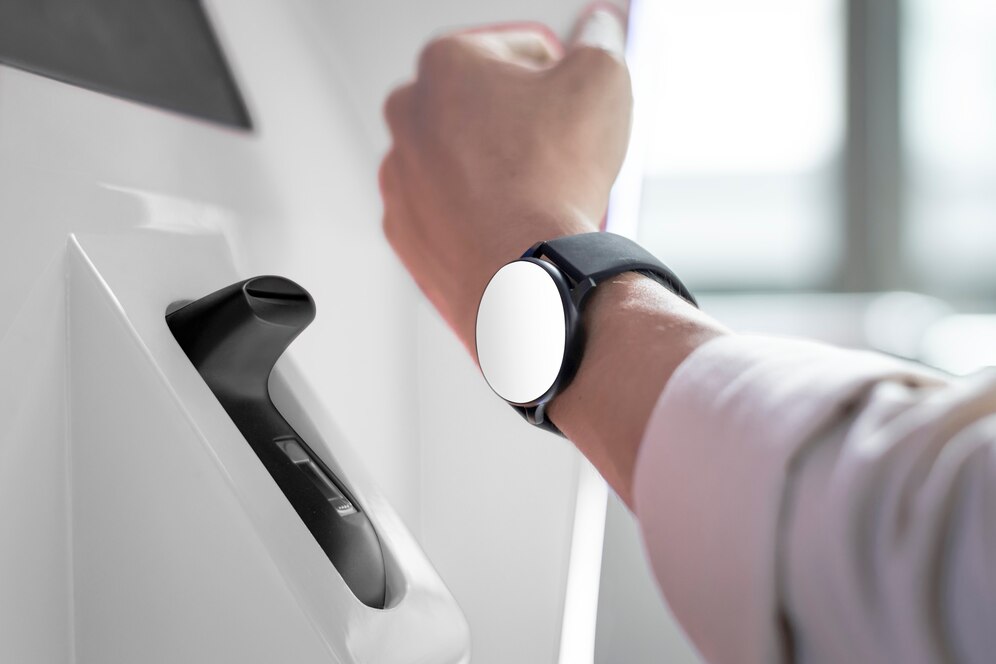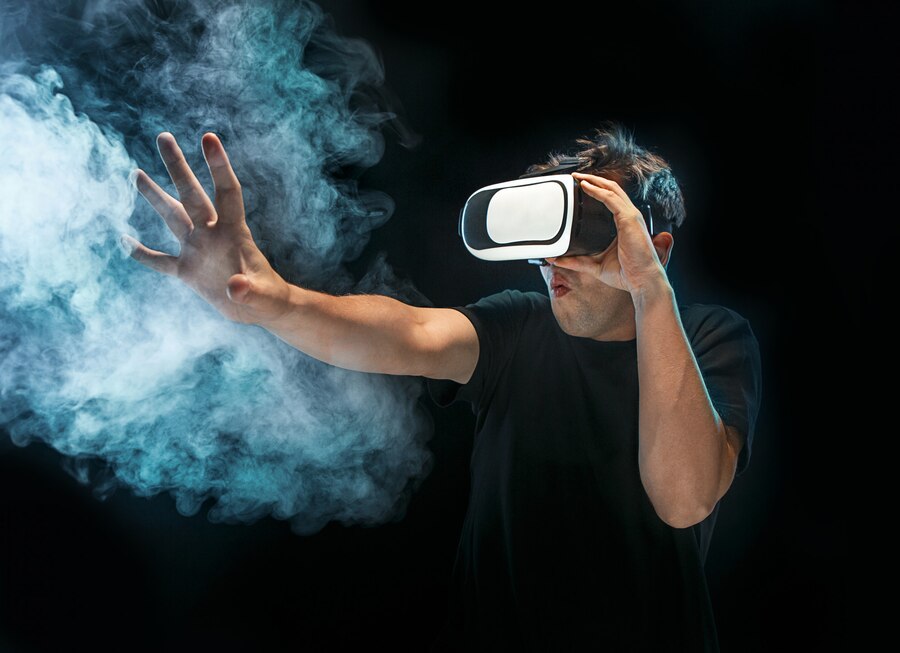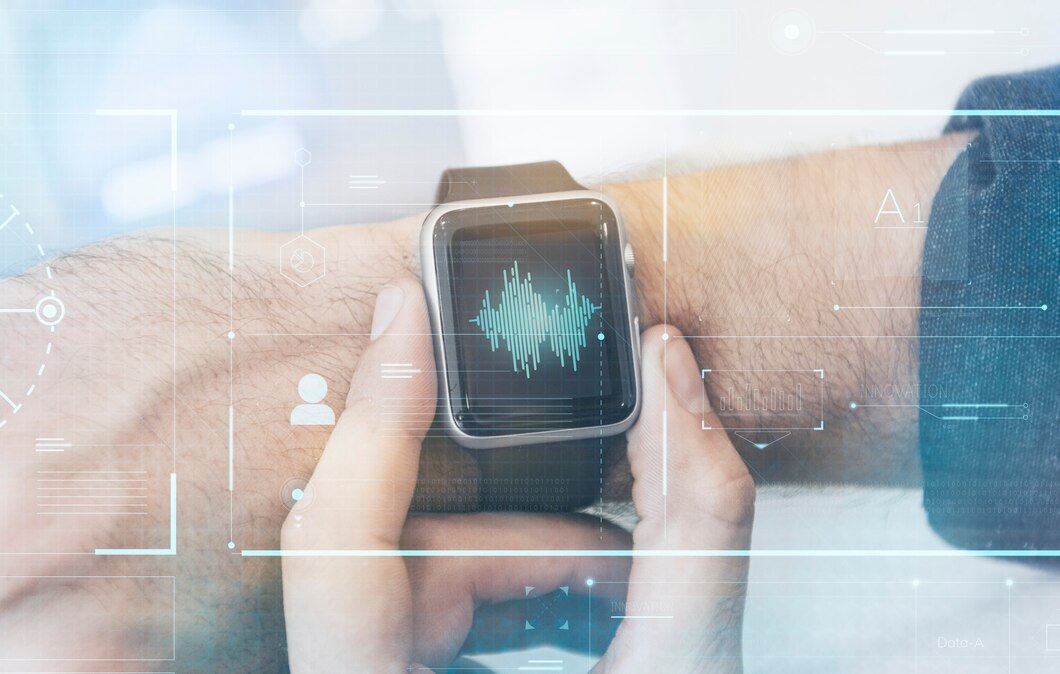By Charalampos Karouzos,
In recent years, wearable technology has seen remarkable advancements, becoming a helpful tool for many individuals in their everyday lives. Apart from being a simple gadget that assists with simple tasks, these devices are bringing the vision of personalized health data and individualized healthcare to life. The devices, which range from smartwatches to fitness trackers, the novel smart rings, or smart glasses, etc., enable real-time monitoring of key health metrics, allowing users to engage proactively in managing their health. As wearables become more integrated into everyday life and more accessible to the public, their role in healthcare continues to expand, offering new opportunities and challenges, holding a great potential for the future, yet also raising ethical considerations.
Technological wearable devices have changed the way health is monitored, altering the previous need for in-clinic monitoring and thus offering a new level of insight into our daily habits and overall well-being. These devices track a variety of health indicators, such as physical activity, sleep quality, and even electrocardiogram (ECG) readings, which can provide early detection of potential health issues. For instance, a study published in Circulation, involving over 400,000 participants, demonstrated that smartwatches could detect atrial fibrillation with remarkable accuracy. The ability to identify heart irregularities before they become serious conditions highlights the life-saving potential of wearable technology.
However, while the accuracy of these devices is impressive, it is not without challenges. As the technology continues to evolve, there is a growing need to improve the accuracy of the data collected, especially in areas such as ECG monitoring. Currently, a significant portion of the data presented by patients using these devices does not indicate a serious health issue, leading to unnecessary anxiety from the patient seeking a life-threatening diagnosis. The devices may indicate the presence of an abnormality; however, it can be brought equal to a diagnosis made following a protocol and using the best available health data in a standardized clinic. The future of wearable technology will likely see improvements in data accuracy, driven by advances in technology and AI-powered algorithms, which will help mitigate these concerns.

Another area where wearable technology is making significant strides is in non-invasive glucose monitoring. Indeed, a study published in Nature Medicine introduced a watch capable of measuring blood glucose levels from sweat with 84% sensitivity. This otherwise simple technology is particularly promising for individuals with diabetes, offering a non-invasive, real-time method for monitoring glucose levels, mitigating the need to use needles multiple times a day. As the accuracy of such devices improves, they will become increasingly valuable tools for autonomous health management, providing users with real-time feedback and potentially reducing the need for constant medical oversight.
Furthermore, one of the most transformative aspects of wearable technology is its integration with Electronic Health Records (EHRs). This integration enables seamless sharing of health data between patients and healthcare providers, facilitating more personalized and timely care. For example, Apple’s HealthKit initiative allows data collected by the Apple Watch to sync with EHR systems used by healthcare professionals. This integration is already being explored by institutions, like Johns Hopkins Medicine, and has shown great promise in improving patient engagement and outcomes. In fact, current active research groups like a recent study conducted by Cedars-Sinai Medical Center found that this integration significantly enhances patient engagement and improves the management of chronic conditions. Furthermore, a report by the Healthcare Information and Management Systems Society (HIMSS) highlighted that leveraging patient-generated health data not only reduces the burden of data entry for clinicians but also increases the accuracy of health records. The efficiency of better data management leads to more timely and targeted interventions, ultimately contributing to better patient outcomes and cost savings for healthcare systems.
However, beyond clinical settings, wearable devices are playing an increasingly important role in personal health management. These devices do more than track fitness activities; they encourage users to adopt healthier lifestyles by providing immediate feedback on various health metrics, such as physical activity, sleep patterns, and heart rate. The real-time data can motivate individuals to make positive behavioral changes, such as increasing their daily activity levels or improving their sleep hygiene.
The importance of physical activity in reducing the risk of chronic illnesses is well-documented, and wearable devices have been shown to help users increase their physical exercise. This fact is supported by a study published in The Lancet Digital Health that found that users of wearable activity trackers experienced a significant increase in physical activity —equivalent to nearly an extra day of walking per month compared to non-users, a boost in activity which is associated with reduced rates of heart disease, stroke, and diabetes, as well as improved psychological well-being.
At the same time, all these effects become much more important as the widespread adoption of wearable technology becomes evident in various parts of the world. A 2022 survey revealed that 46% of respondents in China wore smartwatches, while another survey found that 63% of the Hong Kong population owns an activity tracker and/or smartwatch. These figures highlight the growing reliance on wearable devices for health monitoring and suggest that their use will continue to expand globally.
However, it must be underlined that while the benefits of wearable technology are clear, the rapid adoption of these devices also raises significant ethical and privacy concerns. The management and protection of personal health data are paramount, as the data collected by these devices can be highly sensitive and incidents, like the unintentional disclosure of military locations by Strava in 2018 serve as a stark reminder of the potential security risks associated with location data.
Medical data breaches are a global concern, with numerous cases reported worldwide, including in Hong Kong. These breaches have sparked a global dialogue on the importance of data privacy and security in today’s digital age, and with wearable technology continuing to evolve and becoming more integrated into healthcare systems, these pivotal problems demand effective solutions to prevent misuse of data and to protect individuals’ privacy.

Moreover, the widespread use of wearable technology could contribute to an “epidemic of the worried well”, where individuals become overly concerned with minor health data irregularities. While increased awareness of one’s health is generally positive, it is important to strike a balance to avoid unnecessary anxiety and overuse of healthcare resources.
Wearable technology is rapidly transforming healthcare, offering unprecedented opportunities for personalized health management and early detection of health issues. As these devices become more accurate and integrated with healthcare systems, their potential to improve patient outcomes and reduce healthcare costs will only increase. However, the widespread adoption of wearables also brings significant ethical and privacy challenges that must be addressed to ensure the protection of personal health data. As technology continues to advance with a rapid rate, wearable devices will play a crucial role in the future of individualized healthcare, helping to shape a new paradigm of proactive, data-driven health management.
References
- Large-Scale Assessment of a Smartwatch to Identify Atrial Fibrillation. NIH. Available here
- Smartwatches and Atrial Fibrillation: What Works and What Needs Improvement? American College Of Cardiology. Available here
- Arrhythmias Beyond Atrial Fibrillation Detection Using Smartwatches: A Systematic Review. NIH. Available here
- Non-invasive measurements of blood glucose levels by time-gating mid-infrared optoacoustic signals. nature metabolism. Available here
- Accessing Patient Electronic Health Record Portals Safely Using Social Credentials: Demonstration Pilot Study. NIH. Available here
- 2016 ACC/ASE/ASNC/HRS/SCAI Health Policy Statement on Integrating the Healthcare Enterprise. NIH. Available here
- Effectiveness of wearable activity trackers to increase physical activity and improve health: a systematic review of systematic reviews and meta-analyses. The Lancet. Available here
- Fitness tracking app Strava gives away location of secret US army bases. The Guardian. Available here




